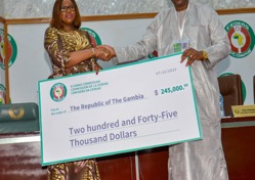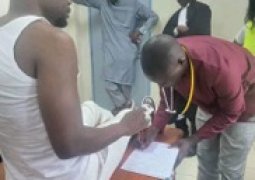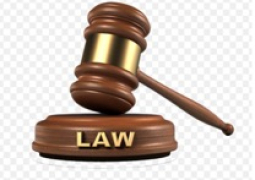
Responding to questions from deputies, the minister explained that the government is implementing the Special Accountability Mechanism Act and the Special Prosecutor's Office Act – both passed by the National Assembly in April this year.
He recalled that the Special Criminal Division was created by His Lordship the Chief Justice in January 2023, adding it awaits the filing of cases from the Special Prosecutor's Office.
“Regarding the government's effort to operationalise the Special Prosecutor's Office, Section 23 of the Act requires, as a first step, the recruitment of the Special Prosecutor through the procedures of an independent selection panel,” he explained.
According to him, this panel will comprise a member appointed by government, a member appointed by ECOWAS, a member appointed by Gambia Bar Association, a representative of the Public Service Commission, and two high-level experts in international criminal law appointed jointly or separately by the government and ECOWAS.
He recalled: “On the 6th of November, the independent selection panel approved its terms of reference and rules of procedure and developed a road map towards the completion of its mandate.”
“It is anticipated that the vacancy announcement for the position of Special Prosecutor will be made by mid-December for a period of two months, and a competitive recruitment process will be employed in the selection of the final candidate. A Special Prosecutor should have been identified by June 2025 regarding the establishment of the Special Tribunal,” he said.
“On the 3rd and 9th of December, the ECOWAS Mediation and Security Council met to discuss and set the agenda for the ECOWAS Authority of Heads of State meeting on the 15th of December.”
He further alluded that the government has represented its memo on the establishment of the Special Tribunal for consideration by the Mediation and Security Council, “and hopefully, this agenda item will remain on the agenda for the Heads of State to make a decision on the 15th of December, approving the establishment of the Special Tribunal”.
“The government notes that 55 recommendations have not commenced implementation, but remains strongly committed to ensuring these are commenced as soon as possible and implemented in a transparent, victim-centered, and inclusive manner,” he said.
Asked why the involvement of ECOWAS in internal matters, the minister responded: “We are looking for partners. In order for us to set up a kind of a tribunal that will be able to prosecute offences that were committed in Uganda during the period of the review, we needed to establish a kind of a court that will be able to implement and enforce international law.
“Our domestic courts cannot prosecute some of the crimes that were alleged to have been committed between 1994 to 2017, and in order to establish that kind of a court, you have to partner with an international organisation. We chose ECOWAS as our natural process partner to do this.
“The government acknowledges the unfortunate re-traumatisation that many victims have, many victims face when they cross paths with either alleged or self-confessed perpetrators from the TRRC proceedings. The government is committed to both the ideals of human rights and the rule of law, paramount to which is the prosecution of crimes committed during the former regime, as well as expediting the urgent need to provide reparations.”




